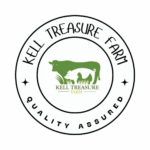INTRODUCTION TO FREE RANGE EGGS
- Brief introduction to free-range eggs
- Importance of choosing free-range eggs
Free-Range Eggs: A Comprehensive Guide
What Are Free-Range Eggs?
- Definition of free-range eggs
- Differences between free-range, cage-free, and conventional eggs
Benefits of Free-Range Eggs
Nutritional Benefits
- Comparison of nutritional content
- Omega-3 fatty acids and vitamins
Environmental Benefits
- Sustainable farming practices
- Reduced environmental impact
Ethical Considerations
- Animal welfare
- Humane treatment of hens
How to Identify Free-Range Eggs
Labels and Certifications
- Understanding egg carton labels
- Key certifications to look for
Visual and Taste Differences
- How free-range eggs look and taste
- Cooking and baking with free-range eggs
Buying and Storing Free-Range Eggs
Where to Buy
- Grocery stores
- Farmers markets
- Online options
Storage Tips
- Proper storage methods
- Shelf life of free-range eggs
The Cost of Free-Range Eggs
- Price comparison with other types of eggs
- Why free-range eggs might cost more
Supporting Free-Range Egg Farming
Making Informed Choices
- How consumer choices impact farming practices
- Supporting local and ethical farmers
Advocacy and Awareness
- Raising awareness about animal welfare
- Participating in advocacy groups
Conclusion
- Recap of the benefits of free-range eggs
- Encouragement to choose free-range for better health, environment, and ethics
Full Article
Free-Range Eggs: A Comprehensive Guide
Introduction:
In recent years, there has been a growing awareness about the food we consume and its impact on our health, the environment, and animal welfare. Among the various choices we make, the type of eggs we buy plays a significant role. This article provides an in-depth look at free-range eggs, highlighting their benefits, how to identify them, and why they are a better choice for you and the planet.
What Are Free-Range Eggs?
Free-range eggs come from hens that have more freedom to roam compared to their caged counterparts. These hens are provided with outdoor access, allowing them to exhibit natural behaviours such as foraging and dust bathing. Unlike cage-free eggs, which may still confine hens indoors, free-range ensures some level of outdoor activity, making a substantial difference in the quality of life for the birds.
Benefits of Free-Range Eggs
Nutritional Benefits
Free-range eggs are often touted for their superior nutritional content. Studies have shown that these eggs typically contain higher levels of omega-3 fatty acids and vitamins such as vitamin E and beta-carotene. These nutrients are essential for maintaining heart health, boosting the immune system, and improving overall well-being.
Environmental Benefits
Choosing free-range eggs supports sustainable farming practices. Free-range farming often involves rotational grazing, which can improve soil health and reduce the need for chemical fertilisers. Additionally, the reduced density of hens in free-range systems lowers the environmental impact, including waste management and resource use.
Ethical Considerations
One of the primary reasons consumers choose free-range eggs is due to animal welfare concerns. Free-range hens are allowed to engage in natural behaviors, which significantly improves their quality of life. This humane treatment is a stark contrast to the conditions in battery cages, where hens have minimal space and are unable to move freely.
How to Identify Free-Range Eggs
Labels and Certifications
Understanding egg carton labels can be confusing. Look for specific terms like “free-range” and certifications from recognized bodies such as Certified Humane or Animal Welfare Approved. These labels ensure that the eggs meet certain standards for outdoor access and hen welfare.
Visual and Taste Differences
Free-range eggs can often be identified by their richer yolk color and firmer whites. Many people also find that free-range eggs have a superior taste, which can enhance the flavor of your meals. When cooking or baking, these eggs can provide better texture and consistency.
Buying and Storing Free-Range Eggs
Where to Buy
You can find free-range eggs in most grocery stores, often in the organic or specialty sections. Farmers markets like us (kelltreasurefarm.com) are also a great place to buy fresh, locally produced free-range eggs. Additionally, many online retailers offer delivery services for free-range eggs directly to your door.
Storage Tips
To maintain their freshness, store free-range eggs in the refrigerator. It’s best to keep them in their original carton to protect them from absorbing odors and flavors from other foods. Free-range eggs typically have a longer shelf life than conventional eggs, but it’s always a good idea to check the expiration date.
The Cost of Free-Range Eggs
Free-range eggs are generally more expensive than conventional eggs. This higher cost reflects the more extensive farming practices required to provide hens with outdoor access and better living conditions. While they may cost more, the benefits to health, the environment, and animal welfare make free-range eggs a worthwhile investment.
Supporting Free-Range Egg Farming
Making Informed Choices
As consumers, our choices can drive demand for more ethical and sustainable farming practices. By choosing free-range eggs, you support farmers who prioritise animal welfare and environmental sustainability. Your purchasing decisions can encourage more producers to adopt free-range practices.
Advocacy and Awareness
Raising awareness about the benefits of free-range eggs and the conditions of conventional egg farming is crucial. Participate in advocacy groups that promote humane treatment of farm animals and support legislation that improves animal welfare standards. Educating others about these issues can lead to broader changes in consumer behaviour and industry practices.
Conclusion
Free-range eggs offer numerous benefits, from superior nutrition to better animal welfare and environmental sustainability. By choosing free-range eggs, you contribute to a more ethical and healthy food system. Make the switch today and experience the positive impact of free-range eggs on your diet and the world around you.
